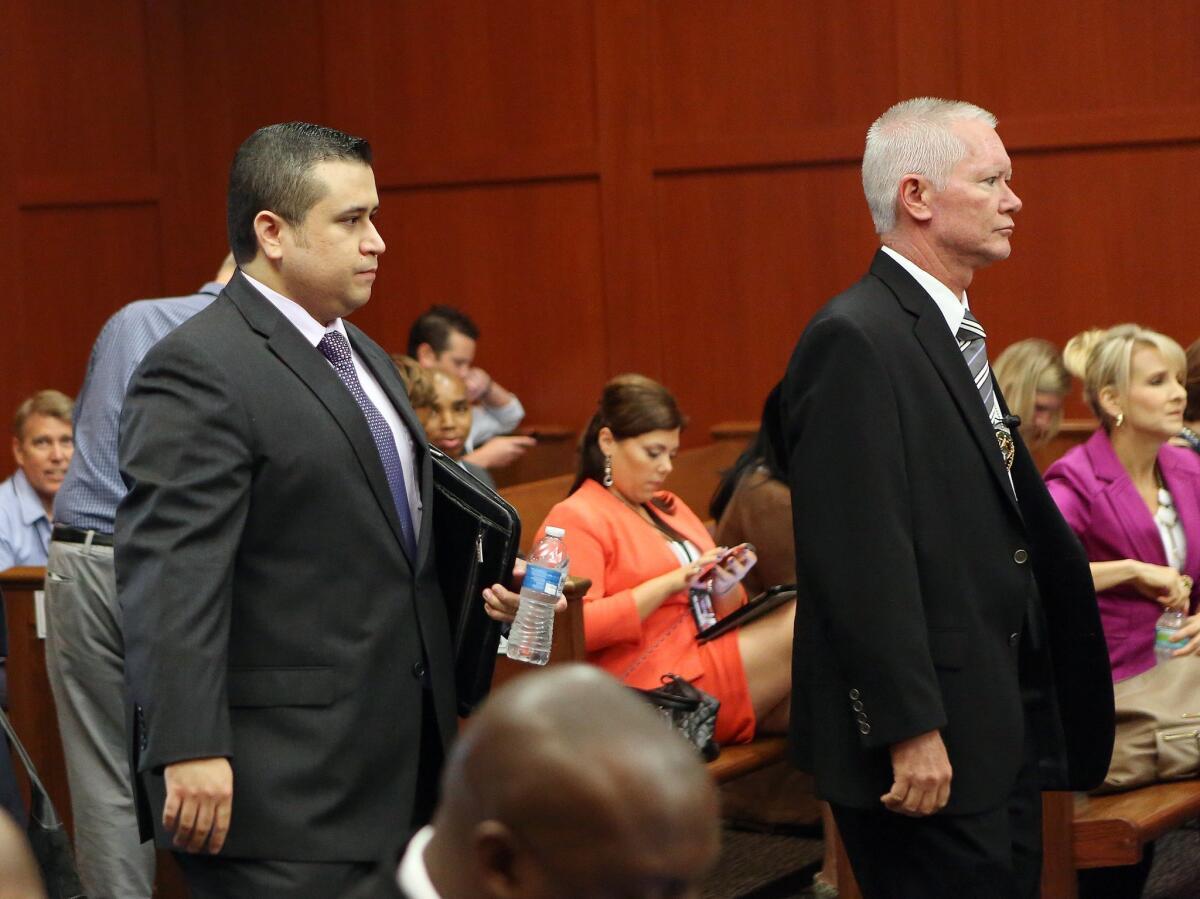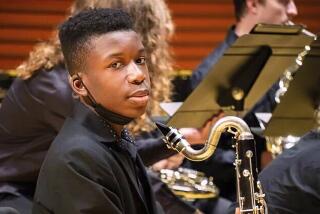George Zimmerman to seek ‘stand your ground’ self-defense hearing

- Share via
Lawyers for George Zimmerman will seek a hearing under Florida’s “stand your ground” self-defense law, which could result in the dismissal of all criminal charges against the man accused of killing Trayvon Martin.
Zimmerman’s defense team will use the controversial state law -- which allows the use of deadly force when someone fears severe injury or death -- because there is “clear support for a strong claim of self-defense,” lawyer Mark O’Mara wrote on the defense’s website.
Zimmerman, 28, has pleaded not guilty to a charge of second-degree murder. He has said that shooting Martin on a rainy February night in Sanford, Fla., was an act of self-defense, sparked by a fight that the teenager provoked. Martin, 17, was unarmed.
PHOTOS: Tense moments from Trayvon Martin case
The hearing will likely occur in a few months. The judge who has overseen much of the legal process thus far, Circuit Judge Kenneth Lester Jr., is expected to preside. Much of the hearing will seem like a mini-trial, including evidence from prosecutors and testimony from experts.
But traditional trial structure is flipped on its head in a “stand your ground” hearing. A judge, not a jury, decides the outcome. The burden of proof lies with the defense, not the prosecution. And the threshold of what needs to be proved is much lower.
In a criminal trial, prosecutors must prove the crime beyond a reasonable doubt. In a “stand your ground” hearing, defense lawyers show “a preponderance of the evidence” -- that is, show with at least 50.1% certainty that Zimmerman “reasonably believed” he would be killed or would suffer serious injury.
A “stand your ground” hearing is essentially “a second bite at the apple,” said Eric Schwartzreich, a Fort Lauderdale lawyer, in an interview with the Los Angeles Times. If the judge rules against the defendant, the case will still go to trial. If the charges are dismissed, Zimmerman will receive immunity from future prosecution in Martin’s death.
“If you win the hearing, it’s game over,” said Schwartzreich, who’s represented multiple “stand your ground” defendants since the law passed in 2005. “If you lose, then you make the same argument to the jury.”
Nearly 70% of defendants using a “stand your ground” defense have gone free since the law passed in 2005, according to a Tampa Bay Times investigation. The same analysis found that the odds of proving a successful self-defense claim go up to 73% if the victim is black.
The decision of the hearing centers around whether Zimmerman felt his life was in danger at the time of the shooting, Schwartzreich said. Although the defense lawyers did not specifically say so, Zimmerman is expected to testify because he’s the only survivor of the Feb. 26 encounter.
“The danger doesn’t have to be real, or actual,” Schwartzreich said. “It’s what the defendant believed it to be -- if he believed he was going to be killed.”
The special prosecutor in the case, Angela Corey, could not be reached for comment Thursday.
The outcome of the hearing hinges in part on Zimmerman’s credibility, which has come into question during the legal process. After Zimmerman allegedly neglected to report more than $150,000 that he raised through a legal defense fund, Lester revoked his bond. Zimmerman’s wife, Shellie, faces perjury charges related to the same incident.
At a hearing in July, Lester questioned whether the undisclosed money would give Zimmerman a way to flee the country.
Zimmerman’s lawyers moved to have Lester removed as judge, saying he was biased against the defendant. Lester, who decided on the motion himself, called it “legally insufficient” and did not step aside.
The case will get trickier if Lester sets a trial date, Schwartzreich said. Defendants usually don’t testify in criminal trials, but they do in self-defense hearings.
“We have a saying in law, ‘A fish doesn’t get caught if it keeps its mouth shut,’” Schwartzreich said.
If Zimmerman’s case were to go to trial, any statement he made under oath would be fair game for the prosecution to use -- and the defense’s arguments, already deployed in the hearing, would be on full display for the prosecution to rebut.
Zimmerman, who is free on $1-million bail, could face life in prison if convicted of second-degree murder.
ALSO:
Faith leaders encourage public lament for Sikh temple tragedy
Face-eating victim: Assailant announced, ‘I’m ... gonna kill you’
Ratcheting up the hurricane forecast: As many as 8, some major
Follow Laura on Twitter. Email: [email protected]
More to Read
Sign up for Essential California
The most important California stories and recommendations in your inbox every morning.
You may occasionally receive promotional content from the Los Angeles Times.











